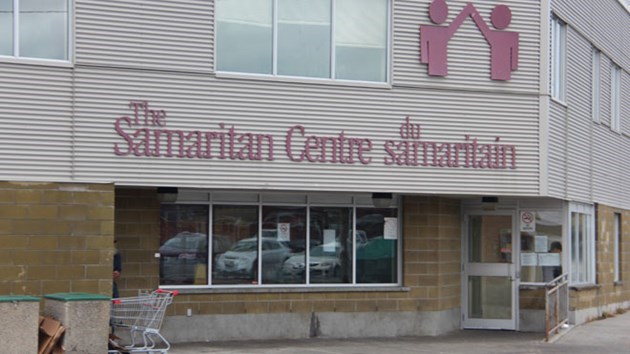Nothing about us, without us: the idea that no policy should be decided, by any representative, without the full and direct participation of those affected by that policy.
It’s the main issue that Lisa Long has with the Downtown Task Team, a group hand-picked by Mayor Brian Bigger to tackle the myriad social challenges, from drugs and crime to homelessness, facing the city’s downtown core. The task team has been criticized by some social services organizations for excluding groups that actually work with the homeless.
“I believe representation from our vulnerable populations should also be made available,” said Long. “The ‘Nothing About Us, Without Us’ philosophy that emphasizes people, our vulnerable population, being valued as integral and essential contributors.
“It seems fitting, as the (Downtown) BIA has a seat.”
If there is representation on the mayor’s team from the business community, Long wonders why the same courtesy hasn’t been extended to organizations that actually work with vulnerable and marginalized downtown populations.
Long is the executive director of The Samaritan Centre and, together with partner agencies the Blue Door Soup Kitchen and the Elgin Street Mission, works with individuals facing multiple social barriers including homelessness, food insecurity, poverty, mental health and addictions, in downtown Sudbury.
She, like other downtown community service groups, were not invited to be a part of the mayor’s task team. She first heard of its creation in October from Ward 11 Coun. Bill Leduc.
“He asked me why I wasn’t on it,” she said.
Long said not only does she want to ensure a more equitable perspective on the team, one that “represents those who call the downtown core their home,” but that the Samaritan Centre would offer valuable insight.
“These are our neighbours,” she said. “This is our neighbourhood.”
Prior to the pandemic, The Samaritan Centre would receive a daily average of 300-400 people. The pandemic hasn’t changed that. Though they have been forced to change their methods, the Samaritan Centre still offers meal services, showers, laundry and other grooming opportunities, as well as a weekly nurse practitioner clinic – all with COVID-19 restrictions in place.
Additionally, Long said that while maintaining all safety protocols, she is consistently interacting with clients who are waiting for services, as well as moving through the downtown to check in and distribute items like granola bars, vitamins, socks, and winter wear.
“I have regular, direct contact with the individuals we serve through the Samaritan Centre, and I’m aware of their needs, challenges and stories.”
The most recent meeting of the Downtown Task Team took place Nov. 25. In an interview with Sudbury.com, Mayor Brian Bigger said he was pleased with the progress the task team is making, but he does recognize the need for expert advice. The most recent meeting of the task team focused on hearing more from experts.
“Our conversation was: how do we engage effectively with the large number of smaller service organizations? They’re working with the people that are experiencing these challenges and crises in the downtown.”
He said the focus now is “trying to understand how we can be strategic, and really drive that value for money from the resources that we do have.”
He also said there is a misconception in terms of the knowledge that council already possesses. “Many people seem to have this impression that if you’re a member of council, people think we’re completely unaware of what’s happening,” he said. “That’s far from the truth.”
He said that because city councillors are interacting with citizens from their wards on a regular basis, “we’re continually involved in trying to resolve challenges in the community, and looking for opportunities to help people navigate and find support.”
Mayor Bigger said this is the impetus for a public engagement forum that the city plans to hold “as soon as possible.”
He said it will be a chance to hear from those who have a vested interest: community groups, business owners, those with lived experience, and the general public.
But as the mayor himself noted, a pandemic-world does make this a challenge. He said it will be “essentially, a listening experience, and an opportunity to hear the ideas and the solutions — to hear about the challenges, about some of the gaps that we might not think of.”
Still, despite the criticism the task team can’t really address issues it doesn’t understand, the mayor said he is “proud of what we’ve accomplished.”
Long, however, isn’t quite sure it will be enough to shape the view that is required, one that is built upon the idea of nothing about us, without us.
“If you look at issues from the perspective of privilege and power, the perspective will be subject to tunnel-vision, and limited in scope and purpose” she said.
“If the objective of the Task Force is to install LED lights downtown, then I am sure they will have a measure of success,” said Long. “If they want to gain an understanding of the people and social issues in our downtown, then I think the framework from which they are problem-solving needs to be reconsidered.”
Jenny Lamothe is a Local Journalism Reporter at Sudbury.com, covering issues in the Black, immigrant and Francophone communities. She is also a freelance writer and voice actor. Contact her through her website, JennyLamothe.com.
